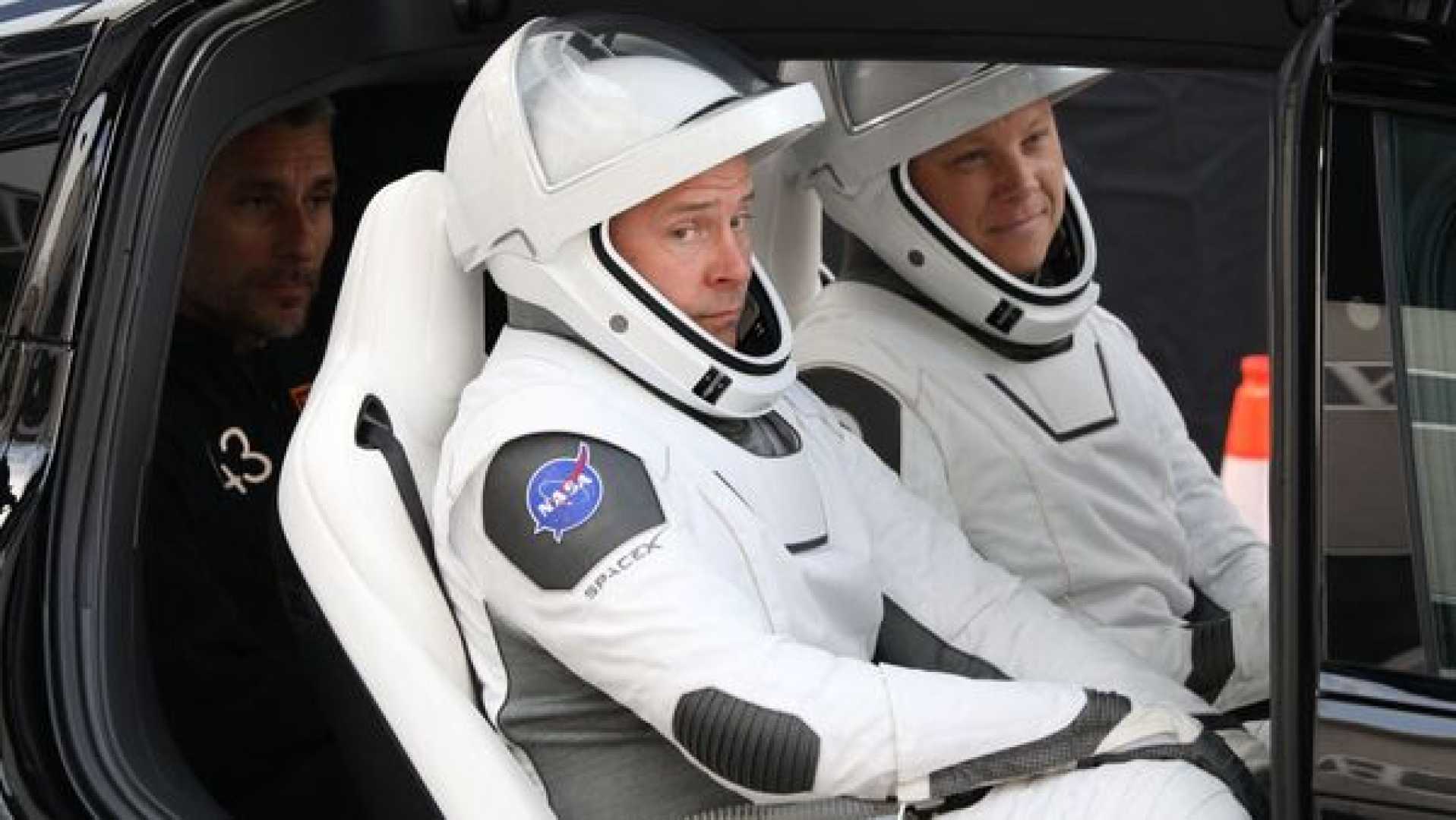News
SpaceX Set to Launch Astronauts to Rescue Stranded ISS Crew

SpaceX is poised to launch two astronauts into orbit as part of a critical mission aimed at rescuing fellow spacefarers from an extended stay aboard the International Space Station (ISS). The launch, scheduled for Saturday, involves the Dragon spacecraft taking off from Cape Canaveral in Florida around 10:45 PM IST. This mission will see the spacecraft carrying a reduced crew of just two astronauts, NASA‘s Nick Hague and Roscosmos‘ Aleksandr Gorbunov, to the orbiting laboratory on a five-month science expedition.
According to NASA’s mission page, “The Dragon spacecraft will carry NASA astronaut Nick Hague and Roscosmos cosmonaut Aleksandr Gorbunov to the orbiting laboratory for a five-month science mission.” Updates from the space agency indicate that preparations are proceeding as scheduled, with the hatch already closed in anticipation of the launch.
The voyage to the ISS, which will be traveling over northeast Bulgaria at the moment of launch, is expected to conclude with docking at around 3:30 AM IST on Monday if all proceeds as planned. Alternative launch windows are available on Sunday or Monday, should weather conditions or unforeseen technical issues arise.
Among the primary objectives of this mission is to safely return NASA astronauts Sunita Williams and Butch Wilmore to Earth. Their planned short-stay mission onboard Boeing‘s Starliner turned into a prolonged eight-month ordeal due to technical shortcomings, including helium leaks and thruster malfunctions.
The need for their immediate return is underscored by the health risks associated with long-term space habitation. These include exposure to space radiation, which NASA identifies as a significant hazard. This ionizing radiation can not only cause immediate health complications but also long-term issues such as cancer and other ailments.
Apart from radiation, astronauts have to contend with the effects of microgravity. The lack of gravitational pull leads to muscle atrophy and bone density loss, alongside other physiological disruptions due to fluid shifts in the body, which affect organ function and can impair vision drastically.
Living in confined and isolated environments for extended periods also presents psychological challenges. Astronauts must maintain a stable mental state while contending with the potential for equipment failures or emergencies, which require quick adaptation and problem-solving skills without direct support from Earth.
Maintaining a livable ecosystem within the spacecraft is equally challenging, necessitating stringent controls over temperature, pressure, and microbial populations to avoid health risks such as infections or allergies.
NASA continues to emphasize the comprehensive nature of the challenges associated with space missions, underscoring the heightened complexity and risks that accompany extended stays beyond Earth’s protective atmosphere.












